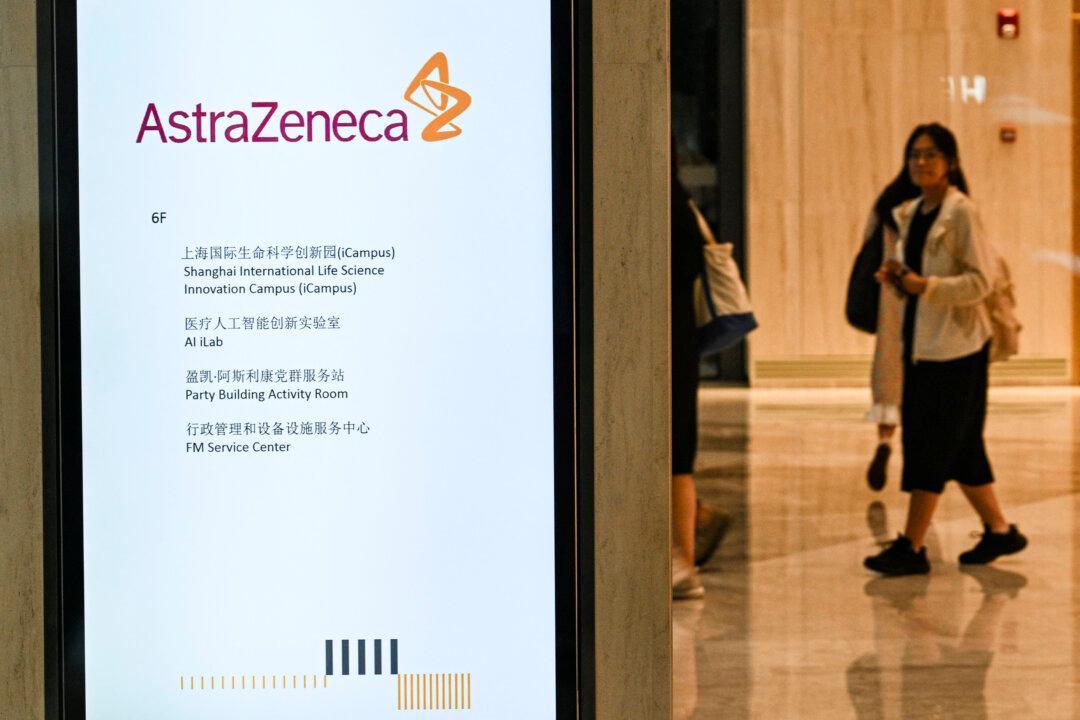Pharmaceutical giant AstraZeneca confirmed on Thursday that “a small number” of its employees are under investigation by the Chinese authorities.
In an email statement to The Epoch Times, an AstraZeneca spokesperson said the company is aware that “a small number of our employees in China are under investigation” and that it has “no further information to share at this point.”




